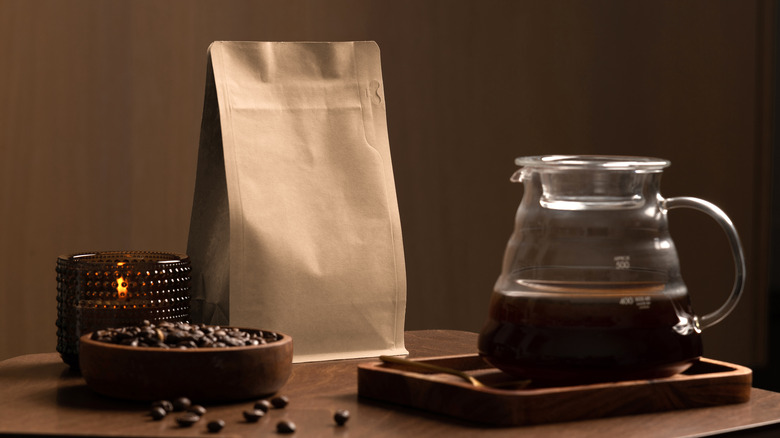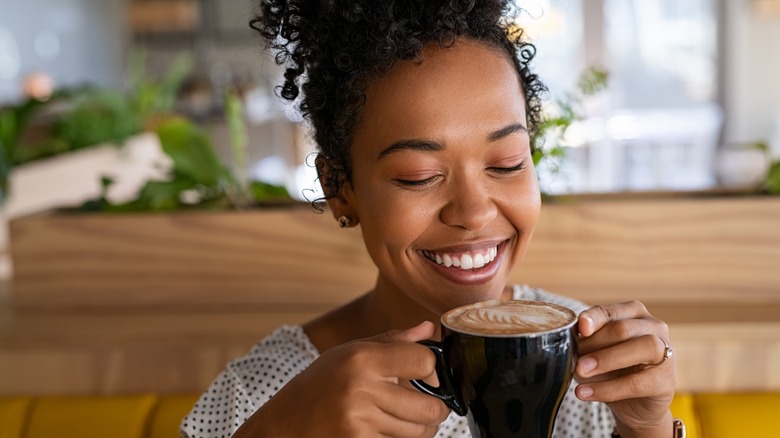Why Coffee Often Tastes Better At A Café Than At Home
Have you ever noticed that the regular drip coffee from your local café just seems to hit harder than the stuff you make at home? Even if your favorite coffee shop happens to sell bagged beans for customers to brew themselves, you might find that they just don't turn into the same cuppa in the percolator on your kitchen stove. What gives?
There may be hundreds of types of coffee on the market, but the only two ingredients in coffee are literally beans and water — so, the H2O you're running through those grounds can make a big difference. Canada-based Coffee Mag explains that pre-existing minerals and alkalinity can neutralize the natural flavor notes in your beans. Depending on your water's mineral content, it can even knock out your coffee's acidity altogether. Your water's pH can swing the coffee's taste to bitter, neutral, or even sour instead of creamy and fresh.
According to Serious Eats, commercial filtration systems range from regulating taste and aroma to enacting reverse osmosis through the brew — and it's pretty unlikely you have one of these systems just lying around the house. Plus, the outlet says, your finished cuppa joe is about 98% water (before cream and sugar, of course). Luckily, there's an easy way to upgrade that lackluster home brew yourself: it's all about choosing the right water.
How to pick the right water for your brew
During brewing, water acts as a solvent that releases the coffee-tasting compounds from the beans. Unfiltered water can contain chloramines, chlorine, and other tastes that impact the finished product of your cuppa joe, says 3M Science.
For more particular coffee connoisseurs, Bean Poet recommends starting with distilled water and adding minerals yourself to achieve personalized desired levels. But, magnesium and calcium, it says, are the two most important minerals in good coffee-brewing water. Magnesium promotes the extraction of a naturally-occurring compound in the beans called "eugenol," which creates the brighter flavors in your morning roast. Calcium, on the flip side, brings out the darker notes.
For optimal brewing, Balance Coffee recommends using filtered water. Water softeners, it says, compromise the hardness a perfect cuppa needs, so steer clear of those. Using bottled water is another bad move — not only is it hugely unsustainable, but bottled waters often come pre-blended with a carefully orchestrated balance of added minerals. Those minerals might make your water taste better, but they're exactly what the home barista is trying to avoid introducing into their coffee brew. Ultimately, try using a filtered water to get started and see how it changes your cup of coffee. Future mornings cuppas will thank you for your pioneer work!

